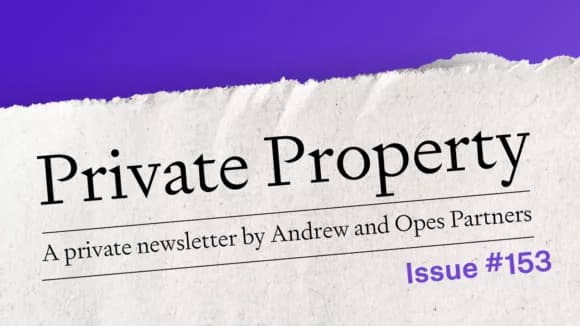
Property Investment
Trump's tariffs and the impact on NZ
Private Property issue #153
Mortgages
3 min read
Banks have been loosening their purse strings.
They’ve slashed their servicing test rates. And that means you can borrow more.
But there’s a catch. The Reserve Bank introduced debt-to-income ratios (DTIs) at the start of 2024. As interest rates fall, these DTIs will start to bite.
But at what point do you have to stop worrying about high interest rates … and turn your attention to DTIs instead? Let’s find out.
Remember, the test rate is what the banks use when running the numbers on your mortgage application.
The lower it is, the more you can borrow.
At the start of the year, ASB’s test rate was 8.95%. Now it’s 7.6% – a 1.35% drop.
Kiwibank’s cut is even steeper. It’s down to 7.5%. That’s the lowest in the market right now.
If you couldn’t afford to borrow before, maybe you can now.
If ASB would lend you $500k at the start of the year for an investment property – maybe you can borrow $612k now.
I say maybe because it depends on your financial situation.
The more debt you have, the more you benefit … but now we’ve got to think about the DTIs.
Debt-to-income ratios (DTIs) tie how much you can borrow to your income.
The maximum you can generally borrow is:
Until now, DTIs haven’t been a big factor. Interest rates were so high you could only borrow 5 – 5.5x your income anyway.
So, the DTIs didn’t stop you from borrowing.
But now that we are seeing rates drop away, DTIs will have more impact.
Here are three scenarios to give you a sense of when you might have to start thinking about the DTIs.
A husband and wife earn $180k between them. They also have 2 cars, 2 kids, and a $500k mortgage.
No other debts.
The bank’s servicing test rate would have to hit 7.53% or lower before the DTIs really start to bite.
Once the test rate drops under that, the DTIs will be the main thing holding them back from borrowing more.
Now, this doesn’t mean they can’t borrow at all. It just means that things start to change.
Now, meet a single professional earning $140k. She has no debt, no mortgage, and no kids.
She’s paying $600 per week in rent … and has just learned she’ll receive a $300k inheritance. So, she wants to invest in property.
Interest rates will be the main thing holding her back until the test rates get under 6.5%.
She doesn’t have a lot of debt already. So, the DTIs won’t really impact her until interest rates get really low (if they do at all).
Finally, let’s look at a couple earning $200k collectively. They’ve got a $300k mortgage on their home and $1 million of debt across two investment properties.
For them, DTIs are already their main limiting factor. As soon as the test rates got under 8.2%, the DTIs started to kick in.
Two options for this couple. They can either follow the new DTI rules or start buying New Builds. Remember, New Builds are exempt from the DTIs.
So the banks don’t have to look at your DTI before they approve the mortgage.
To find the point where DTIs start to impact you. You can use our investment-ready spreadsheet to run your numbers.
Here’s how you do it.
Step #1 – Download the investment ready spreadsheet
Step #2 – Fill out your financial details
Step #3 – Go to the Assumptions tab and change the servicing test rate (usually putting it down).

Step #4 – Keep decreasing (or increasing) the rest rate until:

That’s how low the servicing test rates would have to go before DTIs kick in for you.
This is basically the same process I used to calculate the 3 scenarios above.
Managing Director, 20+ Years' Experience Investing In Property, Author & Host
Andrew Nicol, Managing Director at Opes Partners, is a seasoned financial adviser and property investment expert with 20+ years of experience. With 40 investment properties, he hosts the Property Academy Podcast, co-authored 'Wealth Plan' with Ed Mcknight, and has helped 1,894 Kiwis achieve financial security through property investment.